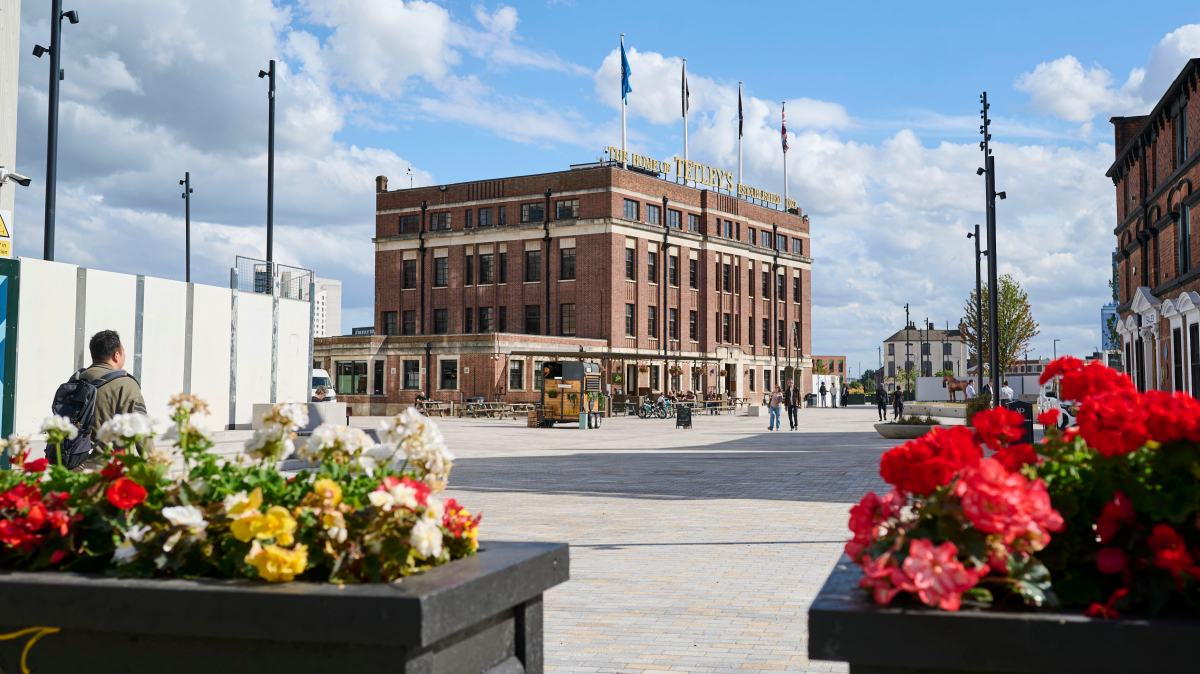Something is stirring in Leeds. The Yorkshire city is burnishing its reputation as a centre for financial services. Rumour has it that designs for signage marking out the perimeter of the “Northern Square Mile” in Leeds are well advanced.
“If London wasn’t there, Leeds would be the UK’s financial capital,” claimed Mandy Ridyard, business adviser to West Yorkshire’s mayor, Tracy Brabin, at the West Yorkshire Combined Authority.
The WYCA is the umbrella organisation for Bradford, Calderdale, Kirklees, Leeds and Wakefield councils — and the Leeds economy is, as they say, going gangbusters. Moving in, citing an abundance of fintech and related talent, have been the Bank of England, the Financial Conduct Authority, the National Wealth Fund, banks and professional services firms.
They are taking big and long leases, with “grade A” office space being about 49 per cent cheaper per square foot than in London.
The Northern Square Mile is an informal cluster of related businesses, and it may soon become a named district. It was put on the map earlier this year when the chancellor Rachel Reeves, a local MP, chose Wellington Place, a new development in the city centre, to announce a streamlining of bureaucracy in the financial services industry. Dubbed the “Leeds Reforms”, the region’s movers and shakers interpreted that as UK government support for the city’s Square Mile plan.
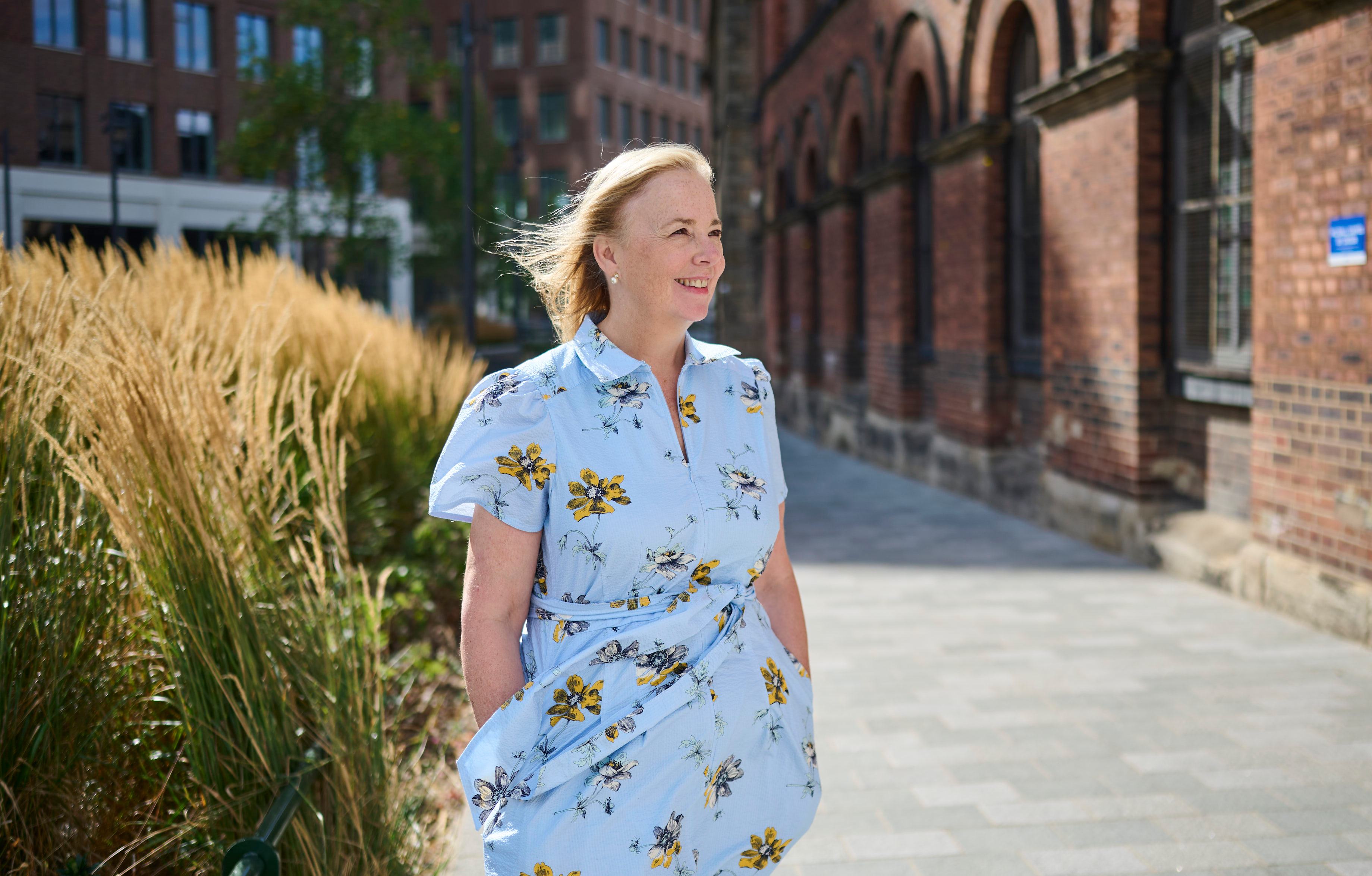
Mandy Ridyard at the West Yorkshire Combined Authority: “If London wasn’t there, Leeds would be the UK’s financial capital”
MATTHEW LLOYD FOR THE SUNDAY TIMES
Leeds has a long pedigree in financial services. It once boasted its own stock exchange, on Albion Place, which closed in 1973 and is now the site of the modern Pinnacle building. The exchange may be long gone, but there are still monolithic stone buildings and sky-reflecting towers accommodating more than 100,000 people employed in banking, finance and insurance.
• Rachel Reeves: I’m pushing regulators to help UK economic growth
The Northern Square Mile is not, however, a replica of the City of London — which is home to an estimated 678,000 people in equivalent jobs. The Leeds version is more mixed use, with retail, leisure, cultural, sporting and residential sites. And it is flourishing.
The mirrored-glass Wellington Place financial centre, built by developer MEPC and investment manager Federated Hermes, is 1.5 million sq ft of office and leisure space, which will ultimately have a working population of about 16,000. It is more of a mini-Canary Wharf, with its cafés, bars and open spaces being a huge draw.
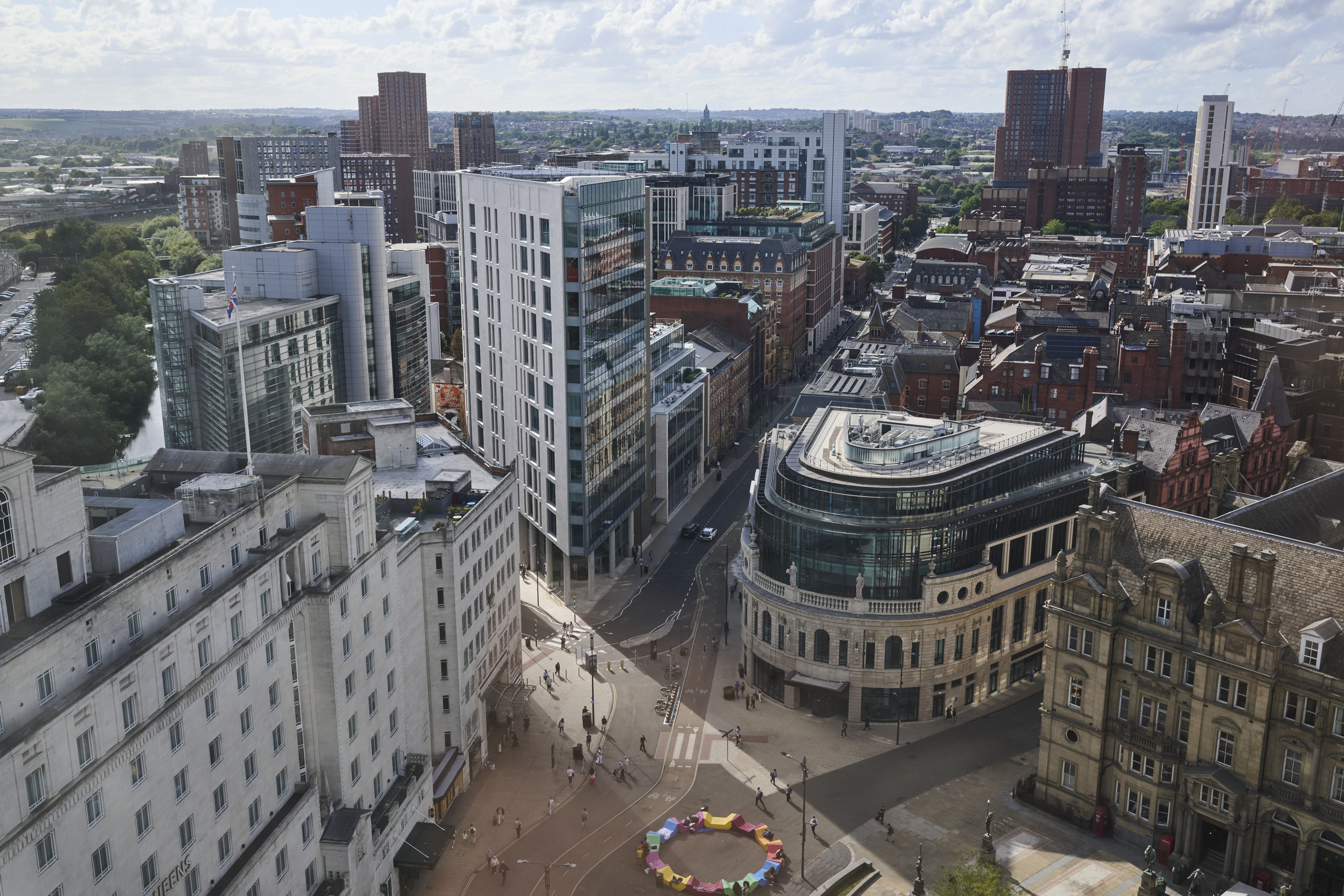
The view from City Square in Leeds, taking in the train station and the new development at Wellington Place
MATTHEW LLOYD FOR THE SUNDAY TIMES
Annually, Leeds’ financial sector contributes £19.8 billion in “gross added value” to the UK economy, according to the WYCA, and accounts for 5 per cent of England’s total economic output.
Seven universities and the UK’s fourth-largest student population — vast numbers of them involved in AI development — contribute to West Yorkshire’s bigger-than-average proportion of young adults in the local population: 38.4 per cent are under 30 (the average across England is 35.7 per cent, according to the Office for National Statistics).
That’s important, one senior bank manager said. “I tell my kids I work in a tech company that just happens to do some banking.” Every conversation seems to feature AI.
Ed Whiting, chief executive of Leeds city council since January this year, said: “As a Treasury senior civil servant working on financial services following the global financial crisis, I watched Leeds’ business community quietly get on with it as a major centre for financial and professional business services. Not fussy or showy, but productive and successful.”
He credited his predecessor, Tom Riordan, with getting the ball rolling, bringing together the city council, the WYCA and mayor Tracy Brabin’s office to think bigger. “We think this is the moment to really shout about what’s happening here,” he added.
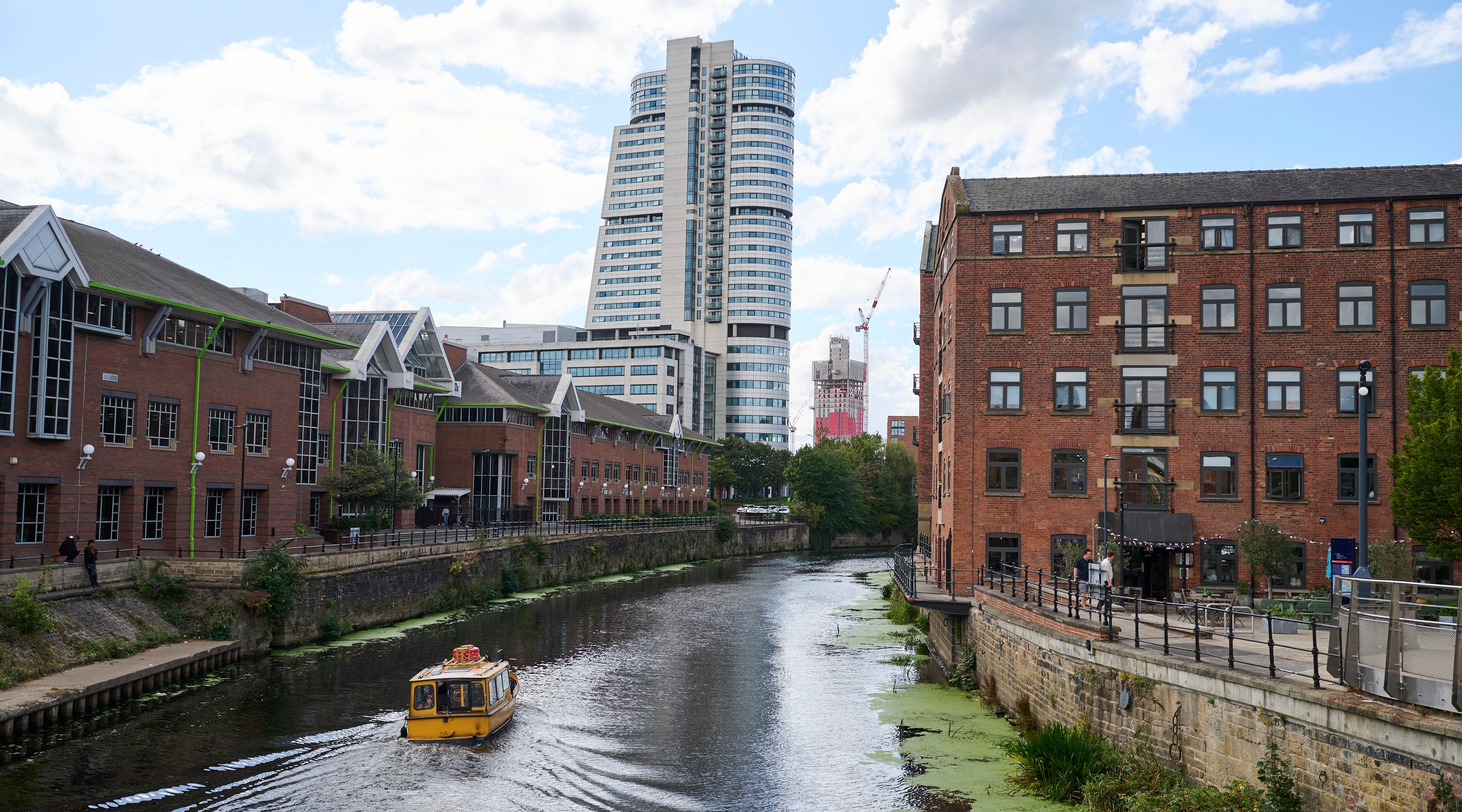
A new wave of services for a changing landscape: a riverboat service heads away from the city’s railway station
MATTHEW LLOYD FOR THE SUNDAY TIMES
Angela Barnicle, director of city development at Leeds council, gave The Sunday Times a power walking tour around the new Square Mile, bombarding us with business names, projects, places to go, things to do, projects in hand and thousands of enthused words.
“Diversity is what gives the financial/professional services sector [in Leeds] its real strength,” she said. “It feeds alongside digital, health [tech], a compelling culture offer and affordability; [housing] price points mean everybody can afford to live here, whether entry-level apprentices or a partner in charge of the practice.”
Alongside her was Ridyard at the WYCA, who said: “Leeds is the agile, funky sibling to the City of London, attracting the best talent and most forward-thinking firms. Our message is clear: the future of financial services is here, and it’s built on a foundation of genuine innovation and collaboration.”
The WYCA has a £7 billion growth strategy and everything in it, she said, is connected — work, leisure and homes, with public transport putting the likes of the Yorkshire Dales 15 minutes away.
Mark Burton, Lloyds Bank’s managing director, head of UK regions, recalled working in the northwest, where business leaders and investors would often be “boasting about successes and hatching deals”.
“They certainly weren’t shy,” he said. By contrast, “in West Yorkshire 10 or 15 years ago, it was more understated. People were doing fantastically well but wouldn’t shout about it.”
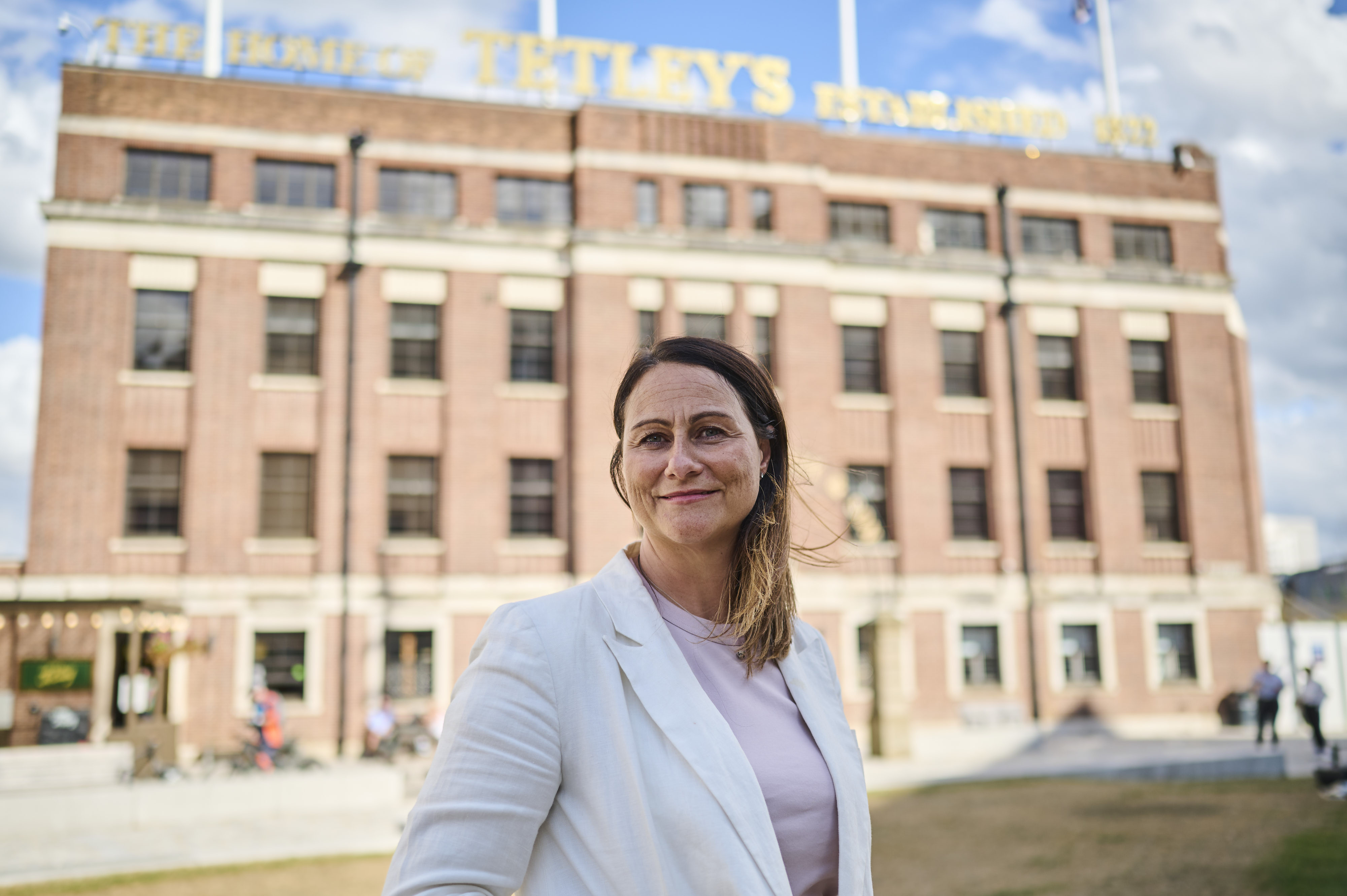
Angela Barnicle at Leeds city council says “diversity is what gives the financial/professional services sector its real strength”
MATTHEW LLOYD FOR THE SUNDAY TIMES
That, he added, changed when Riordan saw what noisy neighbour Manchester was doing; instead of competing, he urged Leeds to “take Manchester’s best bits” and adapt them to suit its own ambitions.
But is Leeds’ potential being fully realised? It is, after all, the biggest city in Europe without a light rail system, and the WYCA is throwing resources at improving bus services.
Phil Murden, senior partner at the professional services firm KPMG in Leeds, said: “This is not some tiddly city — this is a region of substance.” But he admitted that the problem of poor public transport had to be addressed. Spades are due to hit the ground for a new tram network in 2028.
“Leeds has been massively successful without a mass transit system. When we get the tram system, it’ll be fantastic,” said Murden. “We’ve got 1,100 people in KPMG Leeds, commuting from different areas, our clients the same. So the new tram network will make a huge difference. As will bus reform, which the West Yorkshire Combined Authority are driving.”
But what is Leeds’ answer to the City of London’s social scene?
A Leeds-based former Treasury employee struggled to identify the go-to after-work bars, or confirm any degree of drinking culture. “Actually, a really popular event I went to was a beekeeping tutorial on the roof of one of the Wellington Place towers,” he said.
Bees: ironically the symbol of Manchester …
